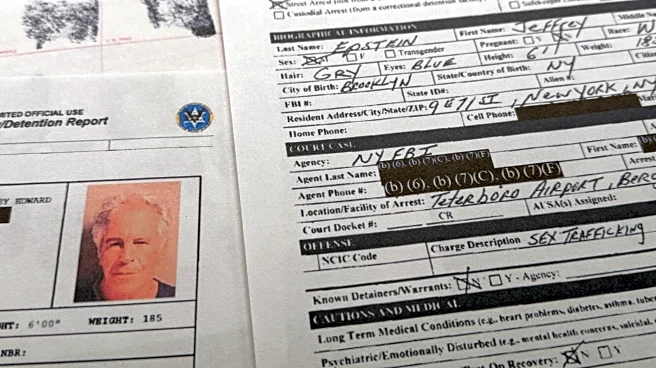What's Happening?
UPS is encountering significant challenges due to recent changes in U.S. import regulations, which have complicated the customs clearance process for international packages. The company reports that while it successfully clears over 90% of imported packages on the first
day, a number of shipments remain in limbo due to missing or incomplete information required for customs clearance. In cases where necessary information cannot be obtained after multiple attempts, UPS may dispose of the packages in compliance with U.S. customs regulations. This situation has been exacerbated by the recent increase in tariffs on certain goods, including steel, aluminum, and wood products, as well as the removal of the de minimis exemption for packages valued at $800 or less.
Why It's Important?
The changes in import regulations and tariffs have significant implications for both consumers and businesses. Consumers face delays and potential loss of goods, leading to frustration and uncertainty. Businesses, particularly those involved in international trade, may experience increased costs and logistical challenges. The situation highlights the broader impact of trade policies on the logistics industry and the potential for increased operational costs. Additionally, the disposal of packages raises concerns about waste and environmental impact, as well as the need for improved communication and information sharing between shippers, recipients, and customs authorities.
What's Next?
As UPS and other shipping companies navigate these regulatory challenges, there may be increased pressure on policymakers to streamline customs processes and provide clearer guidelines to facilitate international trade. Companies may also need to invest in better tracking and information systems to ensure compliance with customs requirements. Stakeholders, including businesses and consumers, are likely to advocate for more predictable and transparent trade policies to mitigate the impact of tariffs and regulatory changes.

















